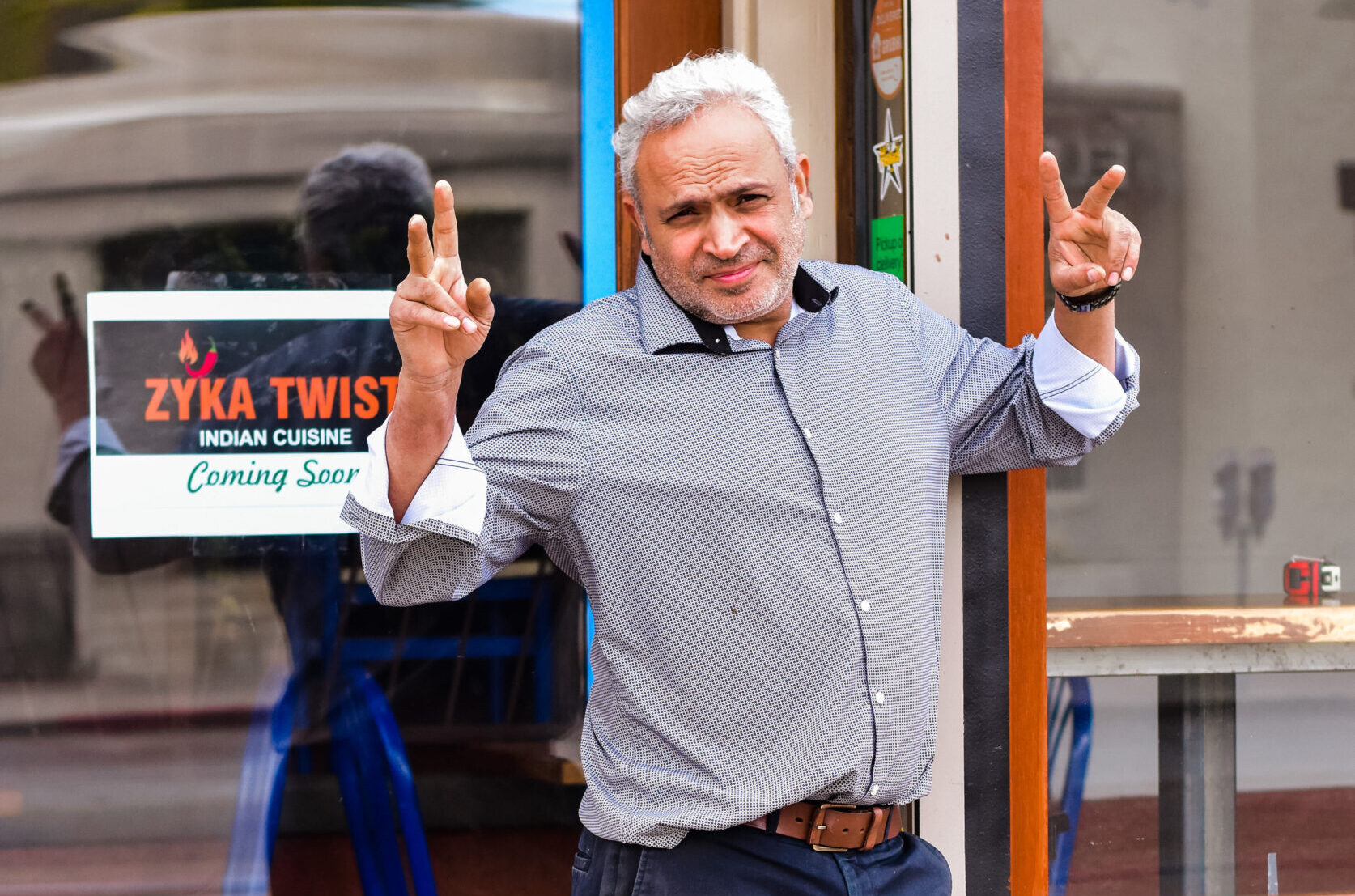
To some, food is simply a means of nourishment. When you’re hungry, you eat. To others, food is a delicacy – an item in a moment to be savored. However, to an immigrant, food is a connection to their birth country and a catalyst to childhood memories and people missed.
Thelma Ward of Fiesta Filipina knows this firsthand.
Ward was born and raised in Bulacan, Philippines to a family of six children. Her father created and distributed jewelry to retailers, a business he ran from the bottom story of their home while they lived upstairs, which is a common practice in many Filipino households. As he handled the crafting end of their shop, Thelma’s mother managed every other aspect of running the operation in addition to raising Thelma and her siblings.
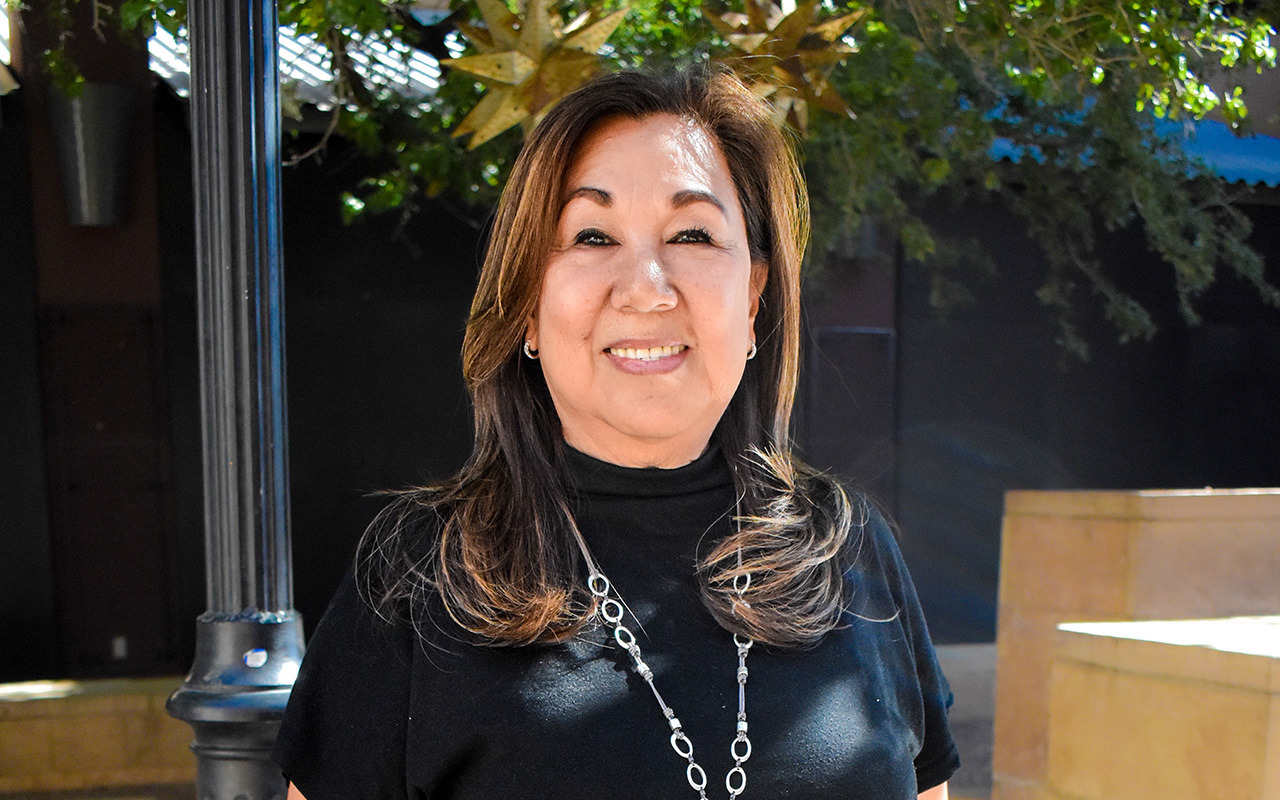
At 12-years-old, Thelma began accompanying her mom to the palengke, or wet markets, a title derived from the often wet and muddy floors found inside. Here she learned how to pick quality ingredients while navigating through dozens of meat and produce vendors. Thelma would then assist in the kitchen and start developing her knack and love for making Filipino dishes that would be served in large portions in order to feed her equally large family.
Known throughout the world for its white beaches, beauty pageant winners, and the always cheerful disposition of its people, anyone unfamiliar with the country’s past might be surprised to learn about the tumultuous history of the Philippines.
For over 300 years, the island nation was a Spanish colony and was later conquered by Japan, before becoming a commonwealth to the United States. It wasn’t until 1946 that the Philippines finally became a completely independent nation, only to soon after be placed under martial law by President Ferdinand Marcos until 1981.
In the same year, Thelma made the move to Washington D.C. out of frustration with the political climate and limitations it presented.
“I came to the United States in 1981, shortly after Martial Law was lifted and replaced with a democracy in name only,” said Ward “I wanted to be in a place where determination to succeed is a real possibility, where opportunities are obtainable and hard work is rewarded.”
While working at a public service station in Northern Virginia, Thelma crossed paths with TV Executive, Dan Ward. The two soon married and made the decision to leave the station and go into early retirement.
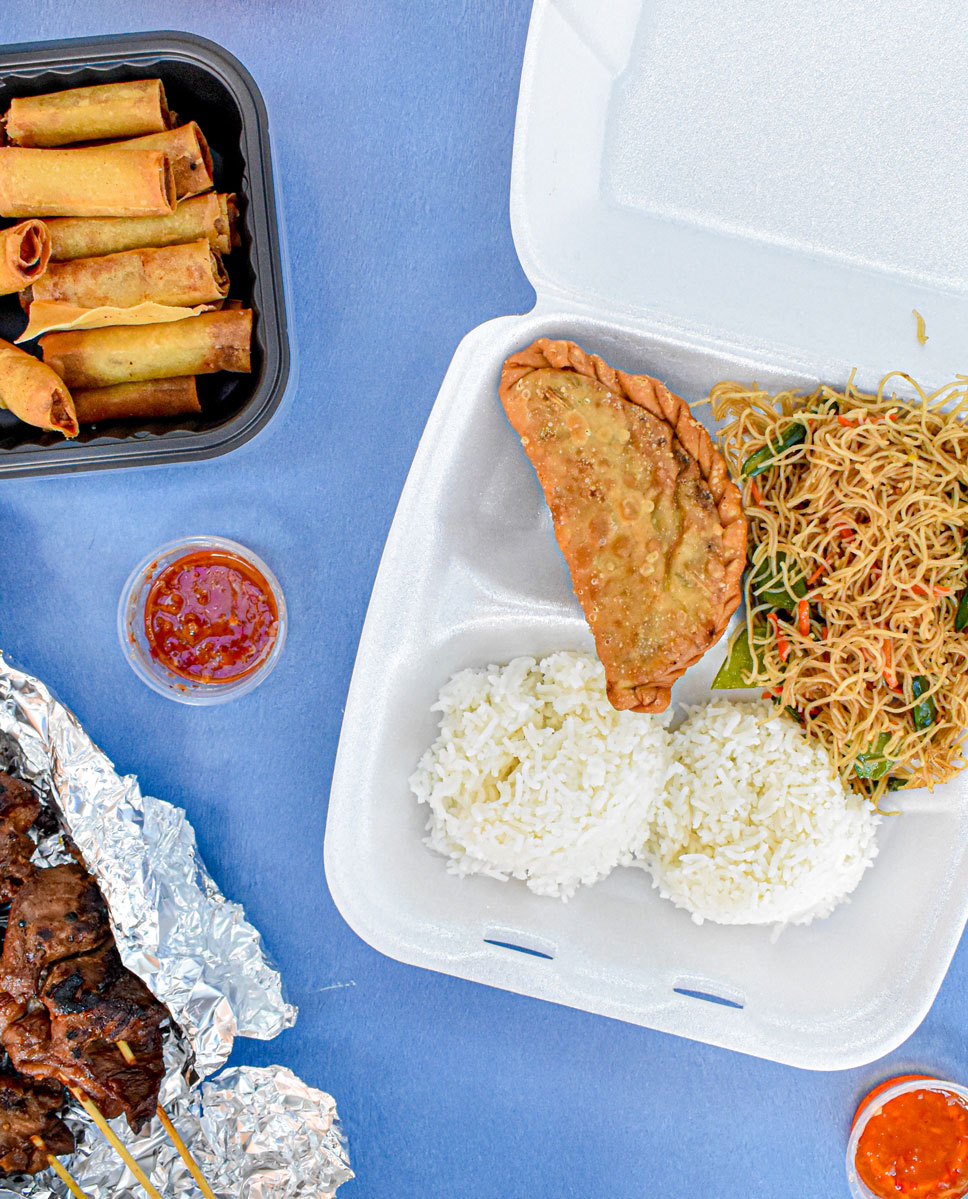
Except they didn’t really retire.
Using money acquired from Dan’s previous job, the Wards opened a successful franchise in Delaware, which they operated for ten years before his health took a turn for the worse and they again made the decision to stop working.
Packing up their belongings, they then purchased a house in Florida and a mobile home where they would travel around the country in full retirement bliss. That is until 2005 when Dan and Thelma decided to follow their son to Tucson and open up more franchise locations in town. These would later on be taken over by their son.
For those keeping count, that would be retirement attempt number three.
Having lived in the city for quite some time, two things that hadn’t changed were her continuous craving for Filipino cuisine and its lack of availability in Tucson.
With fellow countrymen in mind, she wanted to start a business that would allow them to have access to those foods that trigger their nostalgia. Thelma approached her husband with this idea, convinced him to join her in yet another venture, and set forth to open her food truck.
The truck quickly proved itself to be a project well worth their time. Rather than having a permanent location, Thelma had a plan to bring her mobile business to events and celebrations. This way new customers, both Filipino and non-Filipino, discovered her in passing. With this strategy, she effectively attracted attention and created a dedicated client base.
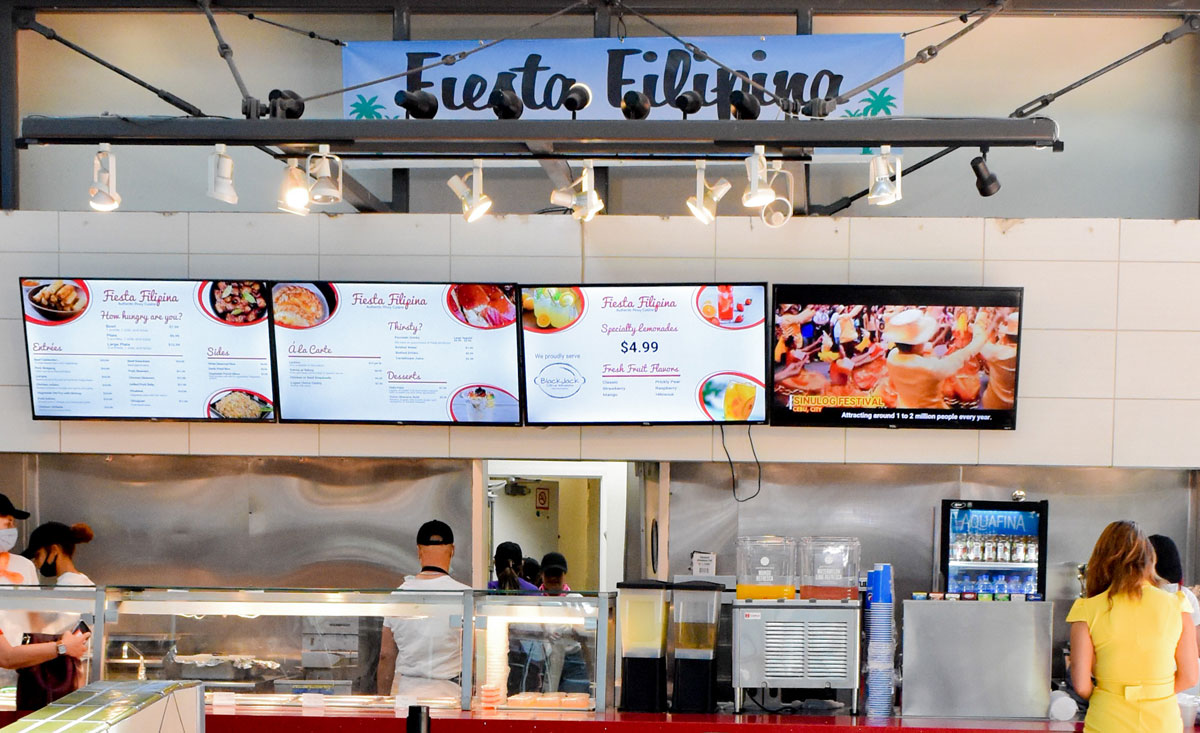
This concept of bringing her business to her customers was not lost when Thelma decided to rent out a space for a brick and mortar location. Rather than opening a stand-alone restaurant, Fiesta Filipina took over a food court space in Park Place Mall. This way, mall goers already shopping will find Fiesta Filipina during their trip, similar to her food truck setup at events.
On the Fiesta Filipina menu you will find a compiled selection of Thelma’s most popular dishes. These include Lumpia, Adobo, Beef Caldereta, Empanadas, Halo Halo, and more.
For beginners to Southeast Asian cuisine, she suggests trying Lumpia or Adobo.
Lumpia is the Philippines’ take on a spring roll and is filled with lightly seasoned ground pork and minced vegetables. It is then rolled in a crepe-like pastry skin and quickly fried until its signature golden brown hue is achieved. They are typically served in smaller sizes, as they are customarily eaten as meryenda, afternoon snacks, or as appetizers at parties.
Unlike lumpia, adobo has a slow cooking process that gives the meat its aromatic, signature flavor composed mostly of soy sauce, vinegar, and black pepper. The dish can be served “dry,” with the marinade drained out before being plated, or simply left with all the liquids. Thelma chooses the second option and serves her Chicken Adobo along with a generous portion of white rice.
Feeling adventurous? Take a deeper dive and try the Beef Caldereta Stew. The dish is made by simmering beef and vegetables in a tomato sauce mixture. Its origin can be traced back to Seafood Caldereta from Northern Spain, in which brandy is added to the sauce. In contrast, Filipinos have nixed the brandy and opted for an ingredient that is more commonly used in the Philippines, puréed liver.
Don’t forget to end with something sweet and ask for Halo-Halo, a dessert with a name that literally translates to “to mix”. Inside is a colorful array of ingredients from around the world that simultaneously work together to create a balanced synchronization of flavors. Some may even go as far as to say that it is an embodiment of the Filipino way of life. Fiesta Filipina’s version features flan sitting on top of crushed ice and sweetened milk, with a combination of Chinese beans and coconut jellies underneath.
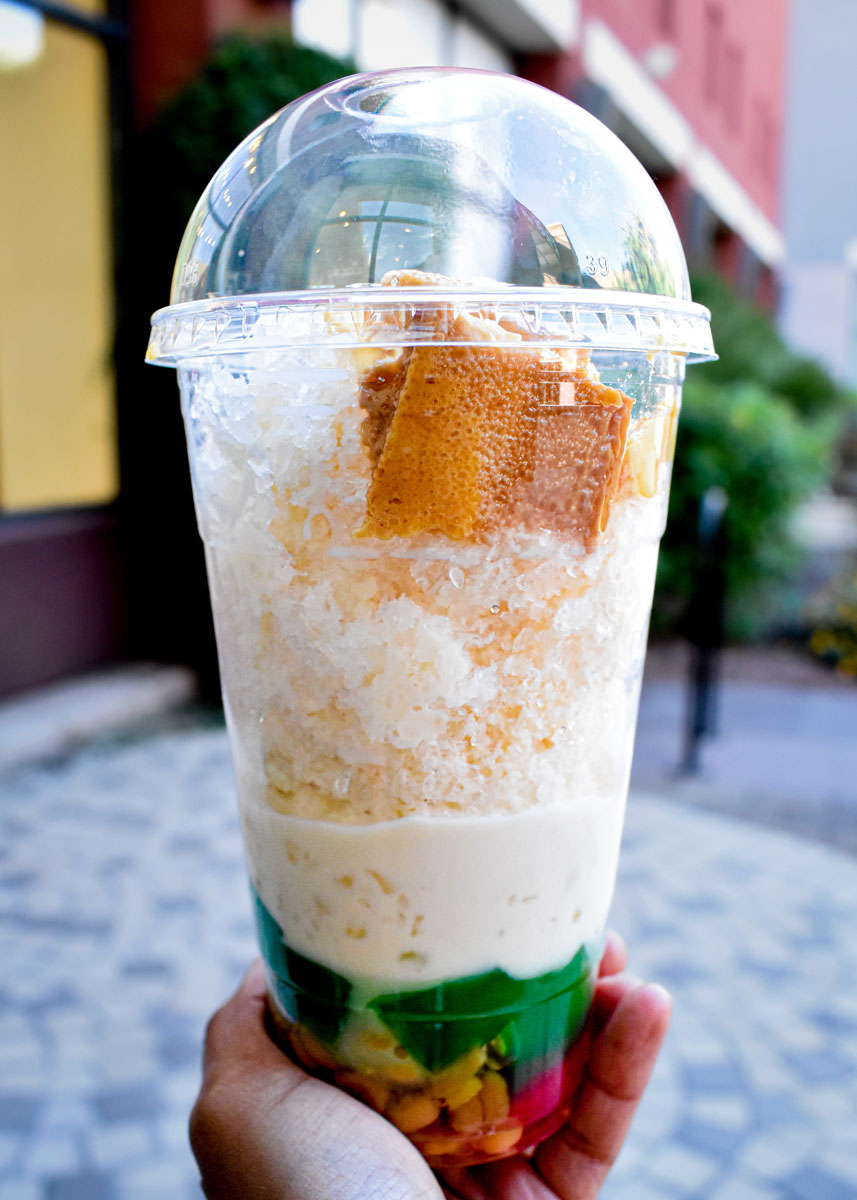
Thelma aims not only to serve authentic Filipino food, but also to educate others on her heritage. Tasting her dishes reveals the combination of Spanish and East Asian influences that make up the unique canvas of flavors in Filipino cuisine, and its culture.
A quick glance up at the TV hanging above their space will then show images of famous landmarks and celebratory parades that are commonplace in their communities. As a snippet in the video states, “In the Philippines, everyday has a reason for celebration.”
Fiesta Filipina is located in the Park Place Mall food court and opens at 11 a.m. daily. Closing hours are 7 p.m., Monday-Thursday, 8 p.m., Saturday, and 6 p.m. Sunday. Learn more at fiestafilipinaconcessions.com.
Kim Johnston is a former preschool educator, turned mom, turned foodie with a strong passion for helping small businesses in her community. With early aspirations of becoming a writer, she attended the University of Arizona to study English literature and...